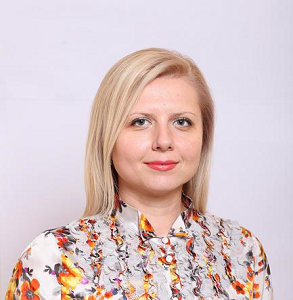Dr. Hanna Doroshuk
Management and Business Economy
Postdoc
Odesa State Polytechnic University
CV: Hanna Dororshuk has 24 years’ experience in teaching and research and 14 years’ experience in training and consultancy in strategic management. She has expertise in designing corporate training modules and Development Programs in Management and Business Administration to form a reserve of top and middle management of the company. She has associated herself in companies in nuclear and wine industry and as a lecturer in university and business school, which is confirmed by Certificates of Honor of the universities and industrial enterprises.
Her research and consulting projects in the field of transformation and formation of intelligent industrial enterprises in the context of digitalization and modern information technologies as artificial intelligence are deserved special attention.
Hanna Dororshuk has more than 200 research papers published in National and International journals of high impact factor, including more than 10 monographs, the most significant of them are “Modern tools for managing the behavior of business entities”, “Organizational development: theory, methodologies, practice”, and 12 textbooks including “Management”, “Anti-crisis management of enterprise”, “Organizational design”, “Change management”.
Presenting about:
THE ROLE OF ARTIFICIAL INTELLEGENCE IN TRANSFORMATION THE ENTERPRISE TO THE INTELLEGENT TYPE IN THE CONDITION OF CONVERGENCE OF THE INTELLECTUALIZATION AND DIGITALIZATION OF THE ECONOMY
Abstract: It is determined that the organizational development of industrial enterprises in the conext of digitalization and intellectualization of the economy turns into an instrument of transformation of enterprises to intelligent industrial enterprises. The own classification of types of organizational development from the standpoint of the process approach is offered.
The classification of intellectual capital as a new criteria of organizational development has been supplemented and it is proposed to separate the internal structure (organizational, structural, partner, entrepreneurial, ideological capital) and external structure (market, client, social, environmental capital) and add individual (human capital) and artificial component (artificial intelligence capital).
Driving force and restraining forces of implementing of the artificial intelligent are systematized. The influence of artificial intelligence on the level of competitiveness of enterprises is considered. The formation of a digital organizational culture at industrial enterprises is analyzed.

